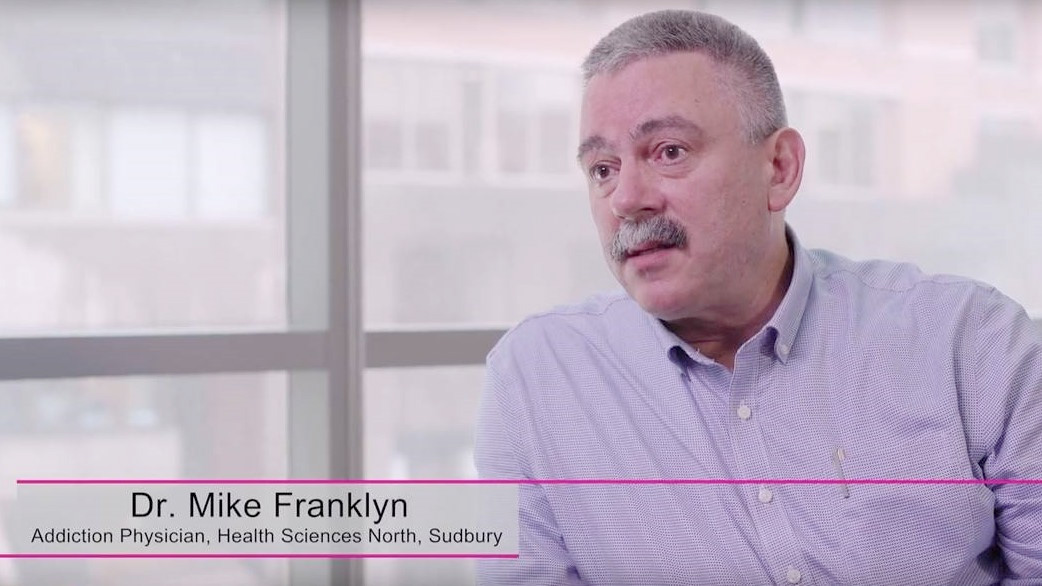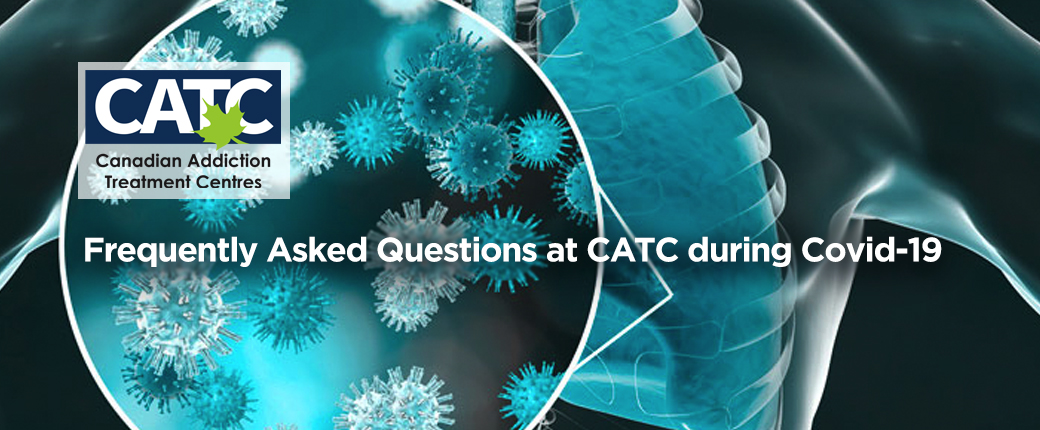Affecting change in addiction medicine

Dr. Mike Franklyn ~ Addiction physician, Health Sciences North, Sudbury.
Dr. Michael Franklyn wears many hats in the field of medicine. As a family doctor in Sudbury for almost 25 years, Dr. Franklyn recalls fearing for the life of a female patient in 2002; she was using methadone and forced to travel weekly to Toronto for care. With only one addiction specialist in Sudbury at the time, the wait list for local treatment was about two years. “Then, I had no background in addiction medicine. But out of my complete frustration with the inability to get help for her in the north, I had to go learn about addiction care and it has since become a huge part of my life and my practice,” he said.
As a family doctor and Associate Professor at the Northern Ontario School of Medicine (NOSM), Dr. Franklyn says about 70 per cent of his time is now focused specifically on addiction medicine. While his home base is in Sudbury, Dr. Franklyn is one of several doctors who fly into remote northwestern Ontario First Nations to treat patients in their home communities, where no other treatment is offered. He also uses OTN to service 13 remote communities in northwestern Ontario.
In Sudbury, Dr. Franklyn is Medical Director of the local Rapid Access Addictions Medicine (RAAM) Clinic, one of seven in Ontario. As the only clinic of its kind in the north, Dr. Franklyn notes it as a “very successful model” where patients with any type of addiction can be seen by an addiction expert within 48 hours. The clinic, which opened in December 2015, was originally funded as a provincial pilot program to offer individuals dealing with addictions earl and assertive treatment, while alleviating burdens on other points of care.
Franklyn noted the financial benefits (of treating addictions) to the province’s health-care system. Treating patients at the RAAM Clinic has demonstrated reduction in their use of local ambulance services, emergency room visits, detox and in-patient admissions. “These are all very expensive interventions,” he said. “By addressing the underlying cause of addition, we dramatically reduce utilization of the system, and are actually doing something that is likely to help the patient.”
According to statistics from the Canadian Centre for Substance Abuse, addiction is a health issue that impacts millions of Canadians. It causes harm to individuals, families and communities. Conservative estimates (from the 2012 Canadian Community Health Survey) found that 4.4 per cent of Canadians met the criteria for a substance-use disorder. Dr. Franklyn adds that there are almost 50,000 people in the province on methadone, and that that only one in three people who are dependent on opiates are seeking help. “The situation is fundamentally worse and more complex than it was just two years ago,” he said.
In what Franklyn calls the current “opiate crisis,” it’s important now more than ever to jump in with both feet. While working in remote fly-in northern First Nations communities his team will spend an entire week with a group of patients addressing their addictions. People lives are literally transformed in the week that starts their recovery journey.
For Dr. Franklyn and his colleagues, seeing the impact they have on people’s lives is the most rewarding aspect of the work. “I love everything I do…but there’s too much to do,” he said.
When asked what keeps him going back to work each day, Dr. Franklyn says it’s the triumph. “There are times where this field of medicine is incredibly frustrating, but just seeing the successes is what keeps you going.”
Originally published on the Ontario Medical Association’s Spotlight on Health.








